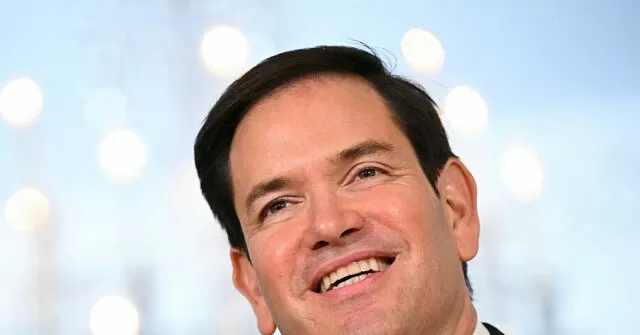On Wednesday, Secretary of State Marco Rubio made a bold announcement that has been met with both praise and criticism. In an effort to combat what the Trump administration has dubbed the “censorship-industrial complex,” Rubio has announced the closure of the Global Engagement Center (GEC) at the State Department.
According to Rubio, the GEC was created under the Obama administration in order to combat “disinformation” and “propaganda” from foreign governments. However, he argues that the Center has become a symbol of government overreach and censorship, rather than an effective tool in the fight against disinformation.
“The GEC has strayed from its original mission and has become nothing more than a bureaucratic machine,” said Rubio in his speech. “It has been used to silence opposing viewpoints and manipulate public opinion, rather than to truly engage with the global community.”
This decision has been met with praise from many Republicans and those who believe in limited government. It is seen as a significant step towards dismantling the “deep state” and reducing government interference in the free flow of information.
Since its establishment in 2016, the GEC has been allocated millions of dollars in funding and has employed over 80 people. However, many have questioned the effectiveness of its programs and the use of taxpayer money to fund what some see as a political agenda.
The GEC’s closure will save millions of dollars in taxpayer money, which Rubio argues can be better spent elsewhere. “There are more pressing issues that require our attention and our resources,” he stated. “We need to focus on rebuilding our economy, securing our borders, and protecting our national security.”
The decision to shut down the GEC has also been met with criticism, particularly from Democrats and those who believe in the importance of countering disinformation. They argue that the closure will weaken America’s ability to combat foreign propaganda and influence, especially with the rise of social media and the spread of false information.
“This move is a dangerous step backwards for our country,” said Senator Elizabeth Warren. “Disinformation is a real threat to our democracy and the GEC was a crucial tool in countering it. Shutting it down only makes us more vulnerable.”
Despite the criticism, Rubio remains steadfast in his decision and is determined to dismantle what he sees as a bloated and ineffective government agency. He has called for a complete review of the State Department’s budget and is determined to eliminate any unnecessary expenses.
With the closure of the GEC, the Trump administration hopes to send a clear message that they will not stand for government overreach and censorship. It also reflects their commitment to reducing government spending and focusing on more pressing issues facing the country.
The decision to shutter the GEC may be controversial, but it is a clear sign of the administration’s determination to shake up the status quo and put America first. As Secretary Rubio stated, “We are committed to protecting our freedoms and our democracy, and that means taking a stand against a government that seeks to control the flow of information. This is a step towards restoring the power to the people.”










